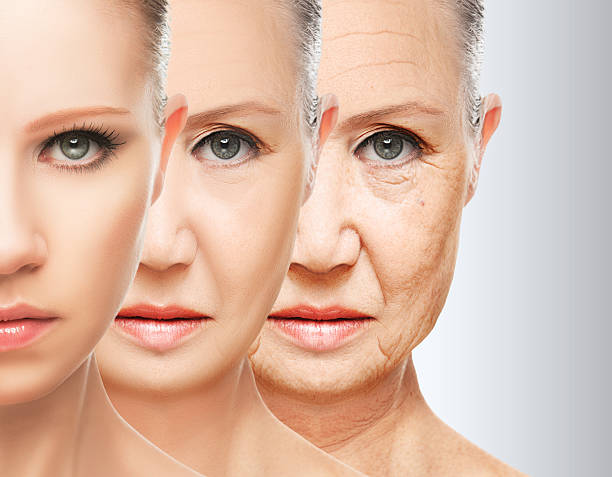Chronic systemic inflammation becomes increasingly associated with risk of death, loss of cognitive function and increasing dependency
The term “anti-aging” has become sort of huckster-ish in my opinion. For the record, I’m a long-term cancer survivor trying to manage a host of long-term and late stage side effects…
Could five nutritional supplements be cause anti-aging? Could taking these five supplements be the ideal life extension therapy?
I added each of the five supplements to my diet as I came upon anti-cancer research for this website and my own learning as a long-term survivor of an “incurable” cancer called multiple myeloma. I came to learn that reducing inflammation is critical in reducing my risk of a secondary cancer but also in reducing my risk of many chronic diseases including Alzheimer’s Disease.
These five supplements are part of my diet and I recommend that you supplement with them as well.
Is it coincidence that five of the most effective nutritional supplements to reduce your risk of cancers and other chronic diseases are the same five supplements that are also reduce inflammation in your body?
Considering the study linked and excerpted below, is also coincidence that inflammation is the best  predictor of successful aging aka anti-aging?
predictor of successful aging aka anti-aging?
I am a long-term survivor of an “incurable cancer” called multiple myeloma. I’ve lived through aggressive conventional/traditional chemotherapy and radiation only to “fail” and told I was terminal. I pursued a controversial alternative medicine and achieved cancer-free status in early ’99 where I remain to this day.
I supplement with the five nutritional, anti-oxidant supplements below. I have no idea how long I’ll live obviously but I will admit that I enjoyed finding and reading the study linked below.
Check back with me every decade or so and you can find out how I’m doing.
thanks
David Emerson
- Cancer Survivor
- Cancer Coach
- Director PeopleBeatingCancer
Recommended Reading:
“Recent Findings- Anti-inflammatory dietary patterns such as the Mediterranean diet (MD) and dietary approaches to stop hypertension (DASH) may be neuroprotective. Several dietary components consumed in the MD and DASH (omega-3 fatty acids, antioxidants and polyphenols) can inhibit neuroinflammation associated with AD. Anti-inflammatory diets may also attenuate neuroinflammation via indirect immune pathways from the gut microbiome and systemic circulation.
Summary– Diet may influence cognitive ageing via several inflammatory pathways. However, data from human studies are lacking and the exact mechanisms linking diet to cognitive function remain elusive. Further dietary intervention studies are required to investigate diet-associated neurological change from the earliest through to latest stages of cognitive decline. Furthermore, incorporation of neuroimaging measures in intervention studies would advance current understanding of the mechanistic effects of dietary modification on neuroinflammation in the ageing brain…”
“According to ConsumerLabs.com optimal blood levels of vitamin D3 may prevent cancer, enhance bone health, reduce the risk of Parkinson’s, rheumatoid arthritis, heart attacks, diabetes, hypertension, reduce symptoms of fibromyalgia, reduce the risk uterine fibroids, Alzheimer’sdisease, dementia, depression, and other conditions.” Anti-aging?
“Omega 3’s as nutritional supplementation may treat cancer, reduce the risk of heart attacks, reduce blood pressure, reduce homocystine levels, reduce the risk of blood clots, treat ulcerative colitis, rheumatoid arthritis, diabetes, depression, anxiety, stress, Alzheimers-like brain disease, age-related cognitive decline and other conditions.” Anti-aging?
“Curcumin as nutritional supplement may help treat cancer, inflammation, ulcerative colitis, rheumatoid arthritis, osteo arthritis, diabetes, depression, anxiety, cognitive function and fatigue, chronic anterior uveitis and other conditions.”
“Resveritrol supplementation may treat cancer, may lower bad cholesterol, may reduce levels of inflammation, improves insulin sensitivity in diabetics, may help memory function and may help prevent the onset of Alzheimer’s Disease dementia and other neurodegenerative disorders.”
- regular green tea consumption is associated with 20% less risk of coronary artery disease as well as a reduced risk of death caused by heart disease–
- consumption of three or more cups of green tea daily reduces risk of ischemic stroke by 21%
- regular consumption of green tea reduced the risk of many cancers including prostate, breast and lung cancers-
- may decrease the risk of developing type 2 diabetes–
- laboratory research has suggested a role of green tea extracts in shrinking uterine fibroids–
- higher consumption of green tea has been associated with a lower prevalence of cognitive impairment in older adults-
“Highlights
- We identify potential drivers of multiple dimensions of the ageing process up to 110 years of age.
- Inflammation is the prime candidate amongst potential determinants of mortality, capability and cognition up to extreme old age.
- Telomere length does not predict successful ageing in the very and extreme old, but centenarians and their offspring maintain telomeres better than non-centenarians.
Centenarians are less susceptible to the diseases, functional losses and dependencies of old age than the general public. Why centenarians age differently, i.e. which biological and pathophysiological processes drive ageing at this extreme old age, is not known. We found that chronic systemic inflammation becomes increasingly associated with risk of death, loss of cognitive function and increasing dependency, but did not predict multimorbidity. In contrast, long telomeres might be important to become a centenarian but did not predict the ageing process further on. Suppression of chronic inflammation could be an essential step towards further improvements in human healthy lifespan.”




